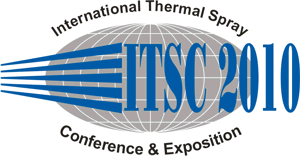
|
2048 |
|
Wednesday, May 05, 2010, Hullet Room 2:00 PM Biomedical and Polymer Coatings |
|
Feasibility of polycarbonate coating by cold spray process |
|
Dowon Seo* / Tohoku University, Japan Nora Mahiou/ National Institute of Applied Sciences Lyon (INSA Lyon), France Kazuhiro Ogawa/ Fracture and Reliability Research Institute, Tohoku University, Japan Tetsuo Shoji/ Fracture and Reliability Research Institute, Tohoku University, Japan Katsumi Ito/ Fracture and Reliability Research Institute, Tohoku University, Japan |
|
Cold spray deposition of polycarbonate on the various substrates has been investigated. The polycarbonate particles are sieved and accelerated at elevated temperature in air through a DeLaval type nozzle, and are deposited on the metallic (pure iron, high carbon steel, aluminum alloy, and Inconel) and ceramic (silicon carbide and alumina) substrates. The influences of the particle size, the gas temperature, the thermal conductivity and surface roughness of substrate on the deposition process are studied. As a result, the continuous deposits are formed on the metallic substrate. The powder sieved below 300um shows better deposition efficiency. Thin film of melted polycarbonate has been formed on the surface of substrate to act as a bonding layer, and its crystalline structure is changed to be amorphous, which is the more stable state for the polycarbonate. The coating seems to be better when the thermal conductivity of substrate is low. For high thermal conductivity substrates (like SiC), there is no deposition whatever was the temperature. Since the material is too conductive, the heat is not kept in the substrate so the coating cannot adhere to the surface. For most of these substrates the thermal conductivity decreases when the temperature increases, and the coating is better at high temperature and low thermal conductivity. |